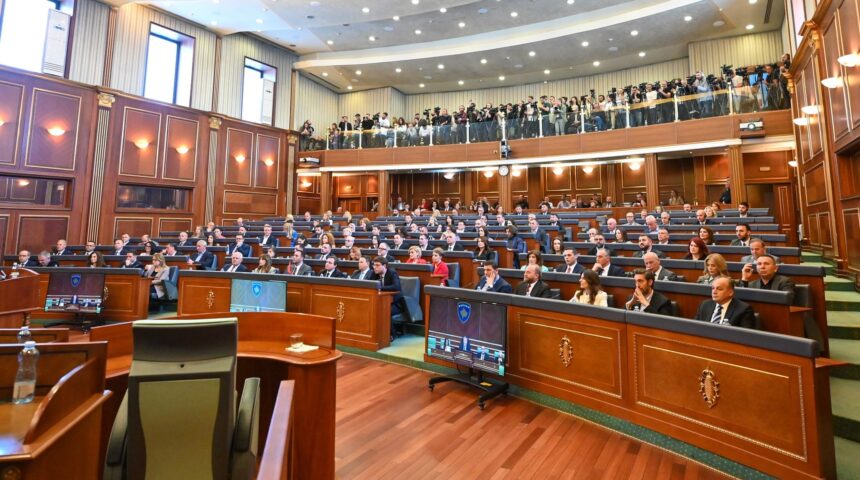As the 9th legislature of the Kosovo Assembly continues to face a prolonged stalemate in its constitution, debate has emerged over the potential legal consequences for the 120 elected deputies. Today, Mimoza Kusari-Lila, chairwoman of the Alternativa party and a deputy from the Vetëvendosje movement, warned that the delay could result in severe repercussions — including the loss of mandates for all MPs.
However, this possibility has been firmly rejected by Eugen Cakolli, a researcher at the Kosovo Democratic Institute (KDI), who says such claims are baseless, both constitutionally and procedurally.
“There is no constitutional or procedural basis for MPs to lose their mandates if the Assembly is not constituted within the 30-day deadline,” Cakolli told KosovaPress. “Discussions of punitive measures against MPs are unfounded and legally unsustainable.”
According to Cakolli, the Constitutional Court has never stipulated specific consequences for failing to constitute the Assembly within the legal timeframe. He emphasized that deputies are expected to act in accordance with the Constitution — not under threat of penalties, but as a fulfillment of their sworn duties.
He criticized what he called a “backward political mindset,” wherein rulings by the Constitutional Court or other institutions are often ignored when they lack concrete legal sanctions. Cakolli noted that while public discourse has begun speculating about possible penalties — including mandate loss or even imprisonment — these are unfounded.
“The failure to elect the Speaker or constitute the Assembly does not constitute legal grounds for losing one’s mandate,” he asserted. “Nowhere in the European system, or elsewhere for that matter, has a constitutional court revoked an MP’s mandate for political deadlock or inaction.”
Cakolli further explained that the Kosovo Constitution clearly outlines the only valid circumstances under which a deputy may lose their mandate: resignation, death, failure to take the oath, or a final court conviction with imprisonment. None of these conditions apply in the current scenario.
“The idea that all 120 MPs could lose their mandates is neither logical nor legally plausible,” he added. “Responsibility cannot be collectively assigned without a constitutional basis.”
Instead, Cakolli warned that Kosovo may soon enter an uncharted constitutional and political territory. If the Assembly is not constituted by the July 26 deadline — as mandated by the Constitutional Court — any further solution would be “extra-constitutional,” meaning not necessarily unconstitutional, but outside the existing constitutional framework.
While Vetëvendosje, as the election winner, is seen to bear the greater burden of responsibility, Cakolli noted that each party may claim it fulfilled its obligation — whether through proposing meetings or showing willingness to vote for alternative candidates. The blame game continues, but the political deadlock persists.
So far, the Assembly has failed 43 times to elect a Speaker. The latest session collapsed due to a lack of quorum, with only 99 MPs present — not enough to vote on forming the committee that enables a secret ballot.
Despite the pressure and looming deadline, Cakolli concluded that the recent wave of statements — such as Kusari-Lila’s warning — are more about shaping public narratives and assigning blame than providing viable legal or political solutions.







